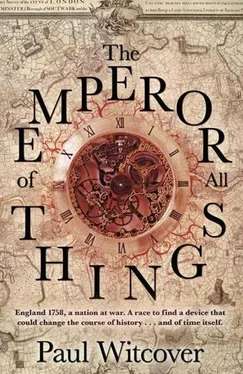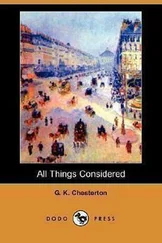The room was otherwise empty; there was no door save the one through which he had entered. Quare did not think he had come here before, though it was difficult to be sure; the layout of the guild hall – the gloomy corridors, tight, twisty staircases, and mazelike clusters of rooms – seemed to change from one visit to the next. ‘I thought you were bringing me to Master Magnus,’ he said, turning to the servant.
‘The master asks that you wait,’ the servant answered. He bowed low and departed, pulling the door shut behind him.
When he had gone, no sign of the door was visible in the carved panelling. Likely there were other concealed doors in the room. And not only doors. Quare felt the prickly sensation of unseen eyes. In the guild hall, it was always safest to assume that someone was looking on or listening; the Old Wolf and Master Magnus, along with their factions and others harbouring ambitions or resentments, schemed incessantly with and against each other, jockeying for information and the power that came with it. Let them look, he thought; he would betray nothing. That was one lesson among many that bastardy had taught him, and he had learned it well.
Quare approached the mirror. His light brown coat and the cream-coloured waistcoat beneath it, as well as the white shirt under that, bore sweat stains from the inferno of the Old Wolf’s private study. He could do nothing about that. But he could and did wipe the sweat from his stubbled face and neck – he had not had time to shave – with an almond-scented handkerchief, then gathered up some lank black locks that had slipped free from the ribbon with which he usually secured his long hair; he detested wigs and wore them as seldom as possible.
Turning from the mirror, Quare fished his pocket watch from his coat and checked it: seventeen minutes past ten. He was gratified to note that the table clock showed the identical time, to the minute. He’d crafted the watch himself, incorporating certain innovations he’d come across in his travels … innovations proscribed to the general public.
By royal decree, the Worshipful Company of Clockmakers was the sole arbiter of the techniques and tools that horologists throughout Britain, whether members of the guild or amateurs, were permitted to employ in the manufacture of timepieces. All journeymen of the Worshipful Company had the duty of protecting its patents and interests. Any timepiece that utilized an already forbidden technology was destroyed, its maker reported to the local authorities, while those clocks evidencing new technologies and methods were confiscated and sent to London for study. The prosperity and safety of the nation depended upon superiority in business as well as in battle, and nothing was a surer guarantee of dominance in both realms than the ability to measure the passage of time more accurately than one’s adversaries. Whether coordinating the shipment and delivery of merchandise over land and sea or troop movements upon a battlefield, the advantage belonged to the side with the best timepieces.
Quare considered himself as patriotic as the next fellow, but it was really his fascination with clocks – or, rather, with time itself – that had caused him to accept Master Magnus’s invitation to join the Most Secret and Exalted Order of Regulators, an elite corps of journeymen trained as spies and dispatched on missions throughout the country and beyond.
But in this, too, he found himself at odds with Grandmaster Wolfe and his faction: men who regarded all horological innovation with profound mistrust, forever apprehensive that the measurement of time would slip out of their grasp and control, rendering the guild superfluous. Such had been the fate of other guilds, left behind by the rapid changes of the modern world. Thus they behaved as jealous priests, withholding approval from all but the most innocuous improvements while keeping the truly important advances to themselves. As a consequence, the timepieces made by the journeymen and masters of the Worshipful Company, whether for the public or for private collectors, no longer embodied the latest technologies, as they once had; now, by design, they were always some years behind the true state of the art. Only the scientists of the Royal Society, and of course the army and navy, received the benefit of the guild’s secret knowledge, and even there, or so Quare would have been willing to bet, certain things were kept back. The result of this (in his view) short-sighted policy was that practical innovation in the horological arts no longer came from within the guild, but from without: from self-taught amateurs – like Lord Wichcote, he was chagrined to admit – whose work was often strange and eccentric, wild. Quare loved the life of a journeyman because it brought him into contact with ideas and methods that had not yet come to the attention of the guild’s censorious authorities. On occasion – by no means often, yet not infrequently, either – he had encountered timepieces of such radical ingenuity, not to say genius, that he had trembled with excitement as he plumbed their workings and let the beauty of another man’s ideas take fire in his mind. No matter that his sworn oath required him to destroy or confiscate these timepieces and suppress the knowledge behind them; he took no pleasure in his inquisitorial powers but exercised them with cold-blooded efficiency because that was the price of admission to and advancement within the guild. He had accepted Master Magnus’s invitation to join the Most Secret and Exalted Order for the same reason, figuring that, as a regulator, he would be able to dip into streams of knowledge more esoteric still, though he’d realized that his acceptance would make it more difficult to avoid becoming enmeshed in the byzantine coils of guild politics … as indeed had been the case.
His mission to the attic workshop of the very eccentric, very wealthy, and very well-connected collector and inventor Lord Wichcote had been his first solo assignment after more than a year of intensive training in spycraft, swordplay, and bare-knuckle boxing … among other subjects he had never thought to learn. Master Magnus had told him only that the viscount had acquired a most unusual and potentially valuable timepiece, one whose secrets could not be allowed to fall into the wrong hands, either within the country or abroad – not with war between the Great Powers in this Year of Our Lord 1758 approaching a climax on which the fate of England hinged.
Quare had set off at nightfall from the top of the guild hall and made his way swiftly but with care across the eerie moonlit and fog-wrapped roofscape of London, his only witnesses skulking cats and startled birds, until he reached Wichcote House, an imposing edifice that towered immodestly above its neighbours. He had studied plans of the house and knew that access to the attic could be had through a skylight; to reach it, he would have to climb.
The brickwork afforded sufficient purchase for him to clamber up the wall with ease, moving with a silence that was already second nature. And this ingrained caution was rewarded: before his head topped the ledge, he heard the faint sound of a creaking hinge from above. He froze, clinging to the wall, whose bricks soon showed themselves to be far less suited for hanging on to than for climbing. He dug in with his fingers and toes, muscles aching and sweat drenching his clothes. When some moments had passed with no further sound, he ventured to peek above the parapet.
At this height, the fog was thinner than it had been when he’d started his climb, and the moonlight was bright enough to read by, quite diminishing the stars. As he’d suspected, the skylight had been opened. The roof was deserted; whoever had opened the skylight was now inside the workshop below. His pulse quickened: the mission had just grown more complicated – and dangerous – than he’d been led to expect. But what of it? Whoever had entered the workshop would have to leave it at some point, no doubt through the skylight, and Quare would be waiting when he came out. The fact that someone else should be prowling about the roof of this particular house of all houses, on this particular night of all nights, was sufficient proof for Quare that the prowler, whoever it was, was here for the same purpose as he. Quare would allow the interloper to do all the work and then step in to claim the prize.
Читать дальше












